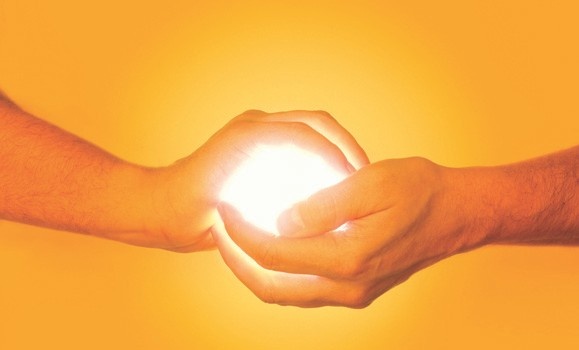This article first appeared in the Winter 2015 issue of .
With 2015 designated as the UNâs International Year of Light and Light-based Technologies, we turn the spotlight on Dalâs light-related research and insight.
Cheaper solar
Rising climate change concerns and electricity rates have many homeowners exploring renewable energy sources. Solar panels are affordable but expensive to install: The necessary racks and wiring required can make solar energy generation a hefty investment. Thatâs why Ian Hill in the Faculty of Science is keen on re-examining solar cells and better incorporating them into materials already used in building construction. âWeâre working on the next generation of solar cell technologies,â says Dr. Hill. His team is working on new solar cell materials and technologies that could be printed directly onto common building elements, like glass windows. What would that mean? With significantly lower installation costs (after all, homes need windows anyway), residential solar electricity generation becomes a lot more affordable.Â
Improved mood
Canadians are used to cold and gloomy winter months. But fewer hours of sunlight can have a major effect on some vulnerable individuals, says Martin Alda, HÂŝğâs Killam Chair in Mood Disorders. Those with depression, bipolar disorder and other chronic mood disorders can experience worsening of their symptoms during times of reduced daylight in fall and winter. âLight is an important factor in mood regulation and it does play a role in mood disorders,â explains Dr. Alda. With light therapies in combination with other treatments, some people who suffer seasonal symptoms of mood disorders can successfully find relief.
Bright upgrades
With three campuses in Halifax and one in Truro, Dal has more than a few buildings to light. Between 2011-2013, âover 80 per cent of Dal buildings have been retrofitted with higher efficiency lamps, ballasts and some lighting controls,â says Rochelle Owen, director of the Office of Sustainability. Itâs one of a number of energy-saving initiatives led by the Office of Sustainability and Facilities Management, with a goal to reduce Dalâs greenhouse gases by as much as 50 per cent by 2020. Next up: the HÂŝğ Agricultural Campus in Truro, Nova Scotia, where testing of LED tube lighting has already taken place.
Staying sun safe
Harmful rays from sunlight are known to seriously damage the skin and lead to cancer. âUVA rays have a longer wavelength and can penetrate the skin deeply. But itâs felt that UVB rays have the potential to cause more damage,â explains Peter Green, with the Faculty of Medicine. UVB rays are more associated with sunburns but over-exposure to both UVB and UVA rays contributes to premature aging as well as cancerous changes in the skin. Dr. Green points out that any unintentional sun exposure is unhealthy, even if an individual tans easily. âIn order to develop a tan, an individualâs DNA would have to be damaged to get there,â says Dr. Green. âA tan without damage is scientifically impossible.â

